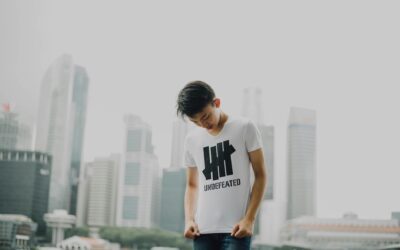Arguably, human response to a crisis is determined by a complex interaction between the nature of the threat and the cultural values that underlie it’s psycho-social fabric.
Covid-19 might be an impersonal macro force, yet our response remains fundamentally human.
Applying this principle to Indonesia leads us to interesting manifestations especially when we analyse new formations in the digital universe. These observations can serve as food for thought, as we squint ahead at a Post-Covid new normal.
In this article, we will be looking at how Covid-19 is impacting the definition of ‘community behaviour’ in Indonesia.
Collective Indonesia: Introversion is perceived as a point of survival disadvantage
Indonesia is no stranger to disaster and the country has always relied on its collective social fabric in difficult times. Gotong Royong (mutual co-operation) is one of the key social ethos.
In the 2019 Legatum Prosperity Index, Indonesia ranked fifth in the world for social capital and first for civic and social participation, with the highest levels of volunteering of any country. In the 2018 Charities Aid Foundation (CAF) World Giving Index, Indonesia also topped the list for frequency of donating and volunteering. Remarkable feats that bear testimony to the culture’s collectivist spirit.
In contrast to this, any force that disconnects an individual from the larger collective is a disadvantage to survival. ‘Introversion’ as a result, has always been seen as a negative trait: a trait that isolates you, diminishes your affinity to the collective, and puts you at a survival disadvantage.

For example, questioning your ‘right to marriage’. A FB page called “Kami Introvert Indonesia” (We, the introverts of Indonesia), posted this: “Marriage: It is not only for extroverts. Introverts and ambiverts have the right to marriage too. While the post aims to be supportive, the topic under discussion itself illustrates the internalised notions of introversion as so negative as to question the ability of introverts to human relationships.
Question on Quora: “How it is like to be an introvert in Indonesia”. An answer below. Again, notice the emphasis put on the perceived inability of the introvert to create and maintain relationships.

Or, this answer to “How can I live as an Introvert in Indonesia”

Enter Covid-19: Indonesia again dips into its collectivistic culture code to survive
In response to Covid – 19, Indonesia dipped into its well-honed cultural response to disaster. This post from BPBD Kabupaten Bantul (a disaster management organization) sums this up pretty well.

“Through the earthquake, Bantul and even Indonesia have learned very valuable lessons, that Disaster Management must be a Joint Affairs. Disaster Risk Reduction Efforts must be made, and the key is with Gotong Royong (Mutual Co-operation)”, the post proclaims. The same day, another tweet from the same page said (translated): “14 years have already passed (from the earth quake), but, for us, we will always remember that event. We overcame that. New Normal, New Civilization, God Willing, we can surely overcome this as well. Fundraising activities on KitaBisa platforms have tapped into this spirit. Celebrities have lent their weight to various fund raising activities. A series of online concerts to raise funds for medical workers by Narasi TV, with famous musicians like Raisa, Tulus, Iwan Fals, Didi KEmpot, Ari Lasso, Yura Yunita, Rossa, Afgan, Vidi Aldinao, has seen huge success.
But, there is a new aspect to consider: social isolation
Social isolation breaks the pattern of social cohesion that the culture has always relied upon for crisis management. And, as a result, for the first time, introversion seems to be emerging as a survival advantage.
The term ‘introvert’ itself came into spotlight as a result of a social media fiasco.
Indira Kalistha, a beauty influencer on Youtube and Instagram , posted a video saying she finds wearing a mask and washing her hands of no importance, she is not following these practices, and if she gets infected, so be it. The medical community in Indonesia naturally was outraged, and took to twitter to express themselves. This outrage spread through citizens, till a ‘clarification’ video from Indira Kalistha stated that she looks proud and confident in the video, but in real life, it is the opposite: she is actually an introvert, who does not think before she speaks.
Indira’s remark alluded to a recessive code of introversion: the awkward social outcast. But, instead of diffusing tension, this remark brought upon a massive backlash on social media.
#Introvert trended for April-May on Twitter and Instagram. People proudly proclaimed themselves as introverts, who think before they speak and, most importantly, are very happy to stay at home.

“I am an #introvert and I always think first before I talk, I like to #stay-at-home also because I do not like crowds.”

“Madam and Sir (referring to Indira Kalistha and her husband), do you want to borrow this book? I will be very happy to lend you this book, if you want to read this”, tweeted a user with a picture of their personal copy of Quiet Impact, a book directed towards introvert potential. By the way, while the description on the original book’s cover is an ambitious one: “How to be a successful introvert’, the Bahasa translated version changes it to a softer problem-solution tone: “No problem if you are an introvert”.
Sarcastic remarks, also, not surprisingly, were aplenty: 
“If Indira Kalistha is an #introvert, then I must be an extrovert and a social butterfly”

“I am an introverted person, but, wherever I go, I bring an alcoholic wipe with me.”
Putting the Indira Kalistha controversy aside, introversion is emerging as a theme across social media.
For example, the limitations imposed by Covid were referred to by President Jok Widodo on the national book day, where he appealed to his countrymen to use this time to read.

“Living in the midst of the Covid-19 pandemic we all live in limitations. Limited activities, limited meetings, even limited space. It’s times like this that we have more time to read books, both physical books and digital books. What books did you read during this pandemic”, his Instagram post reads.
Again, a traditionally “introverted” activity that encourages isolation, and not usually preferred by Indonesians. In the comment section, for example, some people asked if reading comics counts as reading books, sparking humorous repartee.
In fact, one of the popular hashtags for this Eid in Indonesia, #dirumahajah or #stay-at-home, also feeds into this theme of introversion. Ramadan, the holy month, is the time for Indonesians to bond with their friends and families over Iftar. This eventually ends with Mudik, or going-home, where thousands of Indonesians go back to their home-town to be with their family on the day of Eid. Because of Covid-19, the government had to restrict this annual ritual, and Zoom calls had to stand in place of traditional bonding rituals.

Here this Indonesian youth asks for forgiveness, a traditional ritualistic saying that accompanies the Indonesian Ramadan. But, he does it from home because #dirumahajachallenge (stay at home challenge).
In this situation, #dirumahajah or #stay-at-home seems to have become the rallying cry. Again, this imparts introverts with social capital. Isolation is no longer threatening it, in fact, it is one of the best ways one can contribute to the well-being of the larger collective.

The post above is a good example: #introvert #dirumahaja (stay at home) and #haribukunasional (National Book Day) all exist together.
Covid-19, in fact, seems to have successfully redefined introversion as a desirable trait. When social isolation is critical for the survival of the collective, introversion is a virtue to cherish.
If this is indeed the emergent reality, then it might be interesting to observe how the rules of social engagements shift and collective cohesion is redefined. In a post-Covid “new normal”, would there be a new space for behaviours that were not part of the collective fabric before?
What are some new considerations for brands?
Typically, the aspirational social self is built around the ideal of an extrovert. But, in a world with limited avenues of unstructured social engagement, these old norms of the social self are being drastically challenged.
Brands must explore the new rules by which the social self comes into play, and determine how best to speak to it. Introversion, as an emerging theme, opens up some possibilities:
Identify and celebrate different expressions of social capital The traditional image of social capital is crafted around the ideal of an extrovert; gregarious, out-going, with many friends. An ideal that feels inadequate in today’s times.
The theme of introversion could inspire brands to redefine what social capital looks and feels like. For example, celebrating the quiet moments of creativity that leads to connection with a wider audience or the serenity of reflection that leads to a person being more in-tune with others; more considerate and kind. Or the classic introvert withdrawal, that recharges and refreshes, that is aimed towards the good of the larger collective.
It is critical to note that the aim is to celebrate different types of social capital in the context of the larger collective. Absence of the larger collective will push the introvert back into the stereotype of the social outcast.
Redefine the means of forming and maintaining social identity Typically, the means of acquiring social identity is crafted around the ideal of an extrovert: be spontaneous, be at-ease with large groups of people and excel in unstructured conversation.
In absence of regular, unstructured social engagement, these have become inadequate.
So, how are consumers to craft and maintain their social identity? This challenge is particularly critical for adolescents and young adults: a life stage where our sense of self is cemented. Brands could help by creating structured online engagement opportunities for consumers to connect with one another: Spark conversations on different topics, encourage creative expressions, showcase talents.
Re-craft the look & feel of ‘aspirational experience’ Experience is the key currency of social capital. Our ability to acquire and project our experiences equalled our ability to acquire social capital.
Bustling mall-culture in the city of Jakarta is an example. Malls are weekend destinations in their own right to simply hang out with friends and family. Needless to say, Covid-19 has come in the way of acquiring such experiences.
Thus emerges a need to redefine aspirational experiences outside the extrovert mould and instead reimagine the scope of home-alone activities.
Images of cooking, baking, me-time etc. are some of the ways in which consumers themselves are seeking to recraft the semiotics of experience.
Innovation is the key to uplift these home-alone moments to aspirational heights. Brands could borrow from these codes and reconsider the true shape and form of aspiration, instead of force-fitting them from the old mould.






